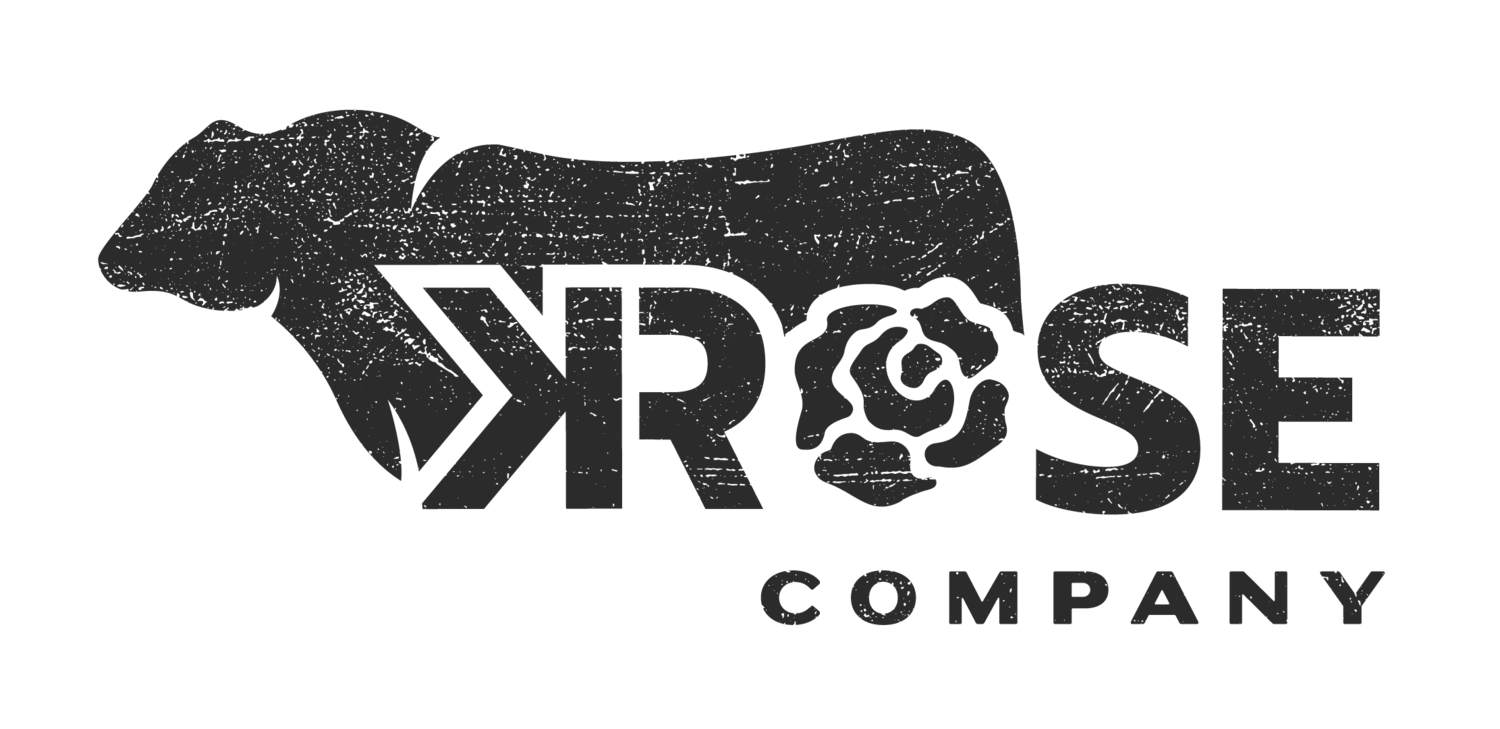Does Hunger in America Matter?
I think most of us who come from rural communities start to understand pretty early the importance of helping others. It’s something we almost take for granted that in small towns and ranching circles, we will take care of each other. It’s hard to believe sometimes that not everyone grows up with those same principles ingrained in them. But even being raised in a community that supports one another, it wasn’t until much later that I realized the real importance of giving to others.
While I was in college, I took a trip to Africa with a friend. Our goal for this trip was to see a little bit of the world and spend some time working in an orphanage in Uganda. It was there that I experienced what giving truly means.
Hunger in a Uganda Orphanage
There were about 50 kids total at the orphanage where we spent time. At the orphanage, the kids would eat meat once a week and we had plenty of rice and beans on the other days. There were power outages all the time. We quickly learned that food in the refrigerator wouldn’t go bad if we kept the door shut and all the cold air was trapped inside. Obviously if it goes days and days, perishables will go bad. But I find it funny when the power goes out for a couple hours in America, a lot of people will clear their whole fridges out when you could just stick a thermometer in your milk to make sure it doesn’t go below a certain temperature. In a couple hours, the chances are slim that all the food will go bad.
There were a lot of Ugandan children at the orphanage who were HIV positive. In most cases children contract HIV from their mothers either in-vitro, during delivery, or through breast feeding. Many babies born with HIV will die before they reach 18 months old. Once a month, the orphanage would load all these children in a van and take them to the HIV Clinic to have their blood checked. The Ugandan doctor who treats the kids comes when he can, there isn’t a specific time frame in which he would arrive.
Amidst Starvation, Food is Shared
At the clinic, most kids with this condition have experienced extreme weight loss, have frequent diarrhea causing more weight loss and dehydration, and face physical weakness and frailty. Their immune systems are working really hard, which causes a faster metabolism. Even when the kids are eating sufficiently, their body burns through the calories quickly. The kids who came off the streets, not from the orphanage, were frighteningly skinny. It broke my heart that our sick kids were the healthiest there. At the orphanage the children are treated well with lots of nutrition and hydration, and most likely, these kids wouldn’t survive until adulthood or even their teens.
A young shirtless boy at the clinic walked up to one of the boys we brought from the orphanage and wanted to play. The shirtless boy was holding a small loaf of bread and was gnawing on it. I looked over and saw him offer our healthier boy half of the bread. I immediately tried intervening. This kid’s wrist bones were sticking out, he had a popped belly, and he clearly needed the nutrients more. But the boy from the orphanage told me this other boy really wanted him to have it. He took it, ate it, and said “thank you.” This moment is impressed in my mind because these kids have so little, and yet are willing to give away something they themselves desperately need.
That generous little boy probably died of starvation within a month after we saw him. It made me realize that it doesn’t matter how much we have, but how much we choose to give. This sick little boy felt like he had plenty of bread and wanted to share what he could with another person. It was a powerful moment. I realized that it is important to give, but it is also important to receive, even when it’s hard to do. I tried to offer the generous little boy some goldfish, granola bars, or rice krispies, but he felt he had enough with his half-loaf of bread.
What Need Really Looks Like
I became really obsessed with the hospital after this visit. I wanted to see what the inside looked like, so I started asking,
“How can I get in the hospital? Can I volunteer? What do I need to do to get inside?”
I knew the hospital had a dirt floor and discovered there was no bathroom inside. The hospital had one of the only nearby sources of free, clean, running water. There were families living in the hospital yard right where people went to the bathroom.
The orphanage helped me find a non-profit organization that takes food into the hospital. Before I was able to go into the hospital, they warned me: “These kids are starving to death. It’s going to get physical in there. You cannot allow parents to take the food from you.”
Parents and grandparents are known to take food from the children in the hospital because they know if the child could starve to death, the adult could leave and go back to work to provide for their other able-bodied children. It’s a devastating predicament and hard to wrap your head around. There are parents and grandparents sleeping underneath the cribs on the dirt floors. Children are crying all around. There was another room with breastfeeding women whose sole purpose is to breastfeed their child to keep him or her alive. All of the women breastfeeding had a sick baby in the hospital. There were no beds in this room; the women all slept on the floor.
We handed out the hard-boiled eggs and soup, talking to some of the parents to understand their needs. It was all very eye-opening seeing these chaotic medical settings and comparing them to what we have in America. We don’t have to worry about our parents sleeping on the dirt floor to prevent their children being placed alone outside. We don’t have to worry about where our next food source is coming from.
I have heard people say, Why don’t we just feed kids beef? There’s plenty of food to go around. But these kids are so sick, their stomachs can hardly digest a boiled egg. If you give them a high protein source, they will die. It’s too much for their sick bodies to digest and process. Chicken broth is often the only thing these children can consume when their bodies are in starvation mode. Nutrient rich foods are too much for a child who might have only consumed 1000 calories over the past month. We can’t just send over beef and solve the problem. We need to know what they need, which for these children is eggs, soup, and if they’re healthier beans and rice. You can’t blanketly solve the problem. My heart was so broken, seeing so much damage. But at the same time, I saw the purest form of hope. Some of these parents and grandparents had been in the hospital for months, dedicated to caring and loving their sick children.
Being Grateful is a Choice
This experience made me a softer person who understands priorities. Of course I’m so far from perfect, but I know I can’t complain about minor things when I know there are families torn apart from preventable deaths and the overall consequences of poverty. I can’t complain about my coffee not being hot enough, or the wifi running slowly when I know there are kids who have only eaten a hard boiled egg in the past week. Despite how little they have, these children are generally quite happy. They have little to no possessions, but smile and laugh at simple things like a silly song or outside playtime. These kids have an internal happiness that shines bright in the face of so many obstacles. It’s pure joy. They are just happy to be alive.
Visiting the children’s hospital was such a pivotal moment for me where I decided it is up to me how I chose to face adversity. How I handle my autoimmune disease, how I handle my circumstances, it’s all 100 percent up to me.
Choosing to Give
This experience truly shaped my commitment to giving. Whether I have $100 or $100,000, there will always be someone who needs the help that only I can give - and it may not be money that they need. One thing my team and I chose to do recently was dedicate $500 to the Feeding America organization. Our Cattleman U program helped us to do this as we donated proceeds from our new membership sign ups in November to the cause.
It’s a real blessing for us to be able to work with members of Cattleman U to give to a cause that is so important. I love that Feeding America’s mission is to end a problem that affects so many, even here in the United States. It will always be on my heart to give more and find new ways to support the people I have the power to make a difference for, after witnessing what hunger really is, though I have never experienced it myself.
According to Feeding America, every community in the country is home to families who struggle with food insecurity. We don’t have to travel across the globe to see people who are struggling to feed their families. Perhaps you have experienced hunger in your own household. Whether hunger has been part of your life or has merely been something you have witnessed out of the corner of your eye in your community, I want us to work together to find ways to end hunger. As a rancher, part of my job is to feed people. Caring for the people in our local communities is a responsibility we should not take lightly.
What are the things we can give? What are the projects we can develop? What difference can we make to end the devastation that hunger brings? Each of us have our part to play. What’s yours?


